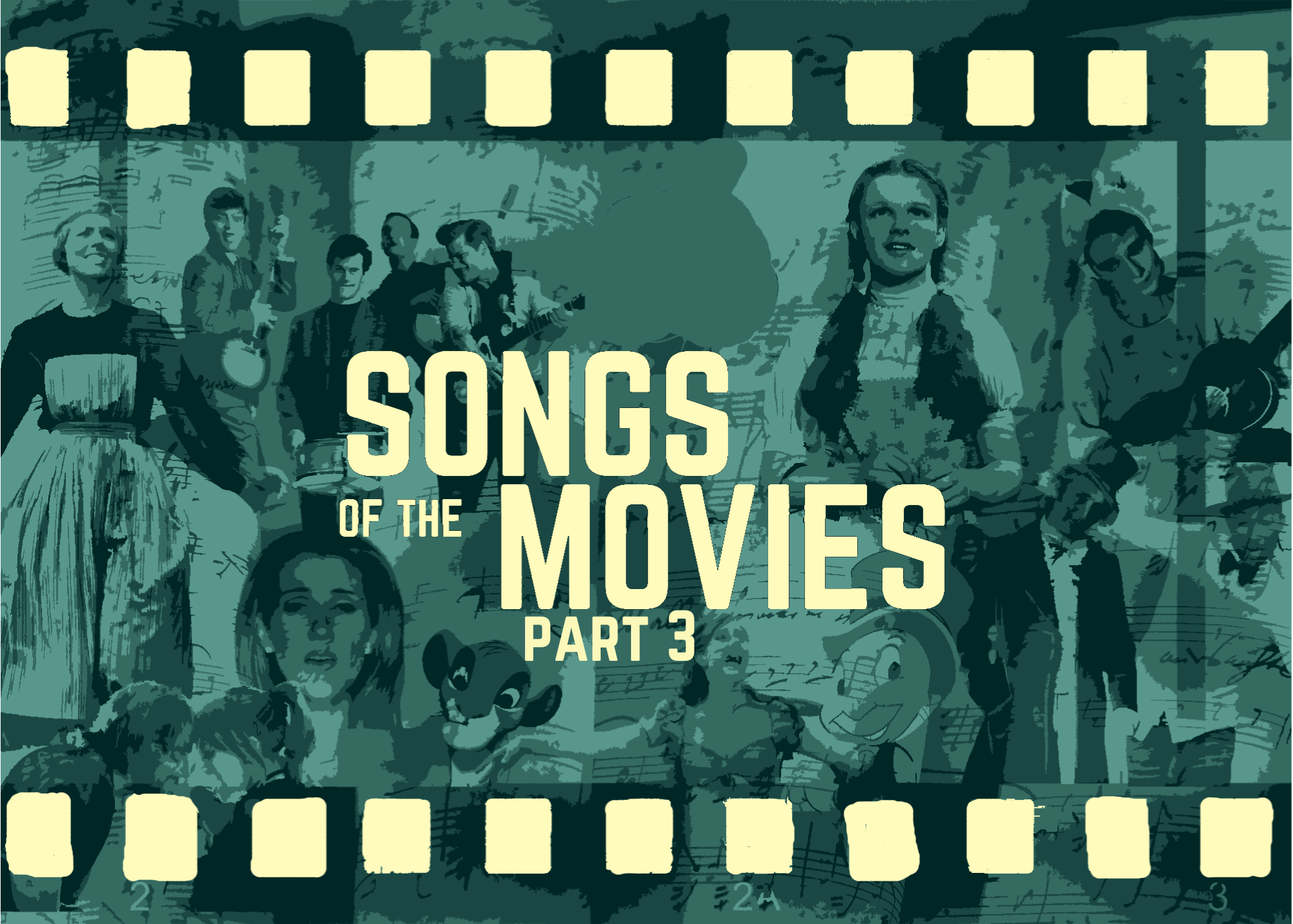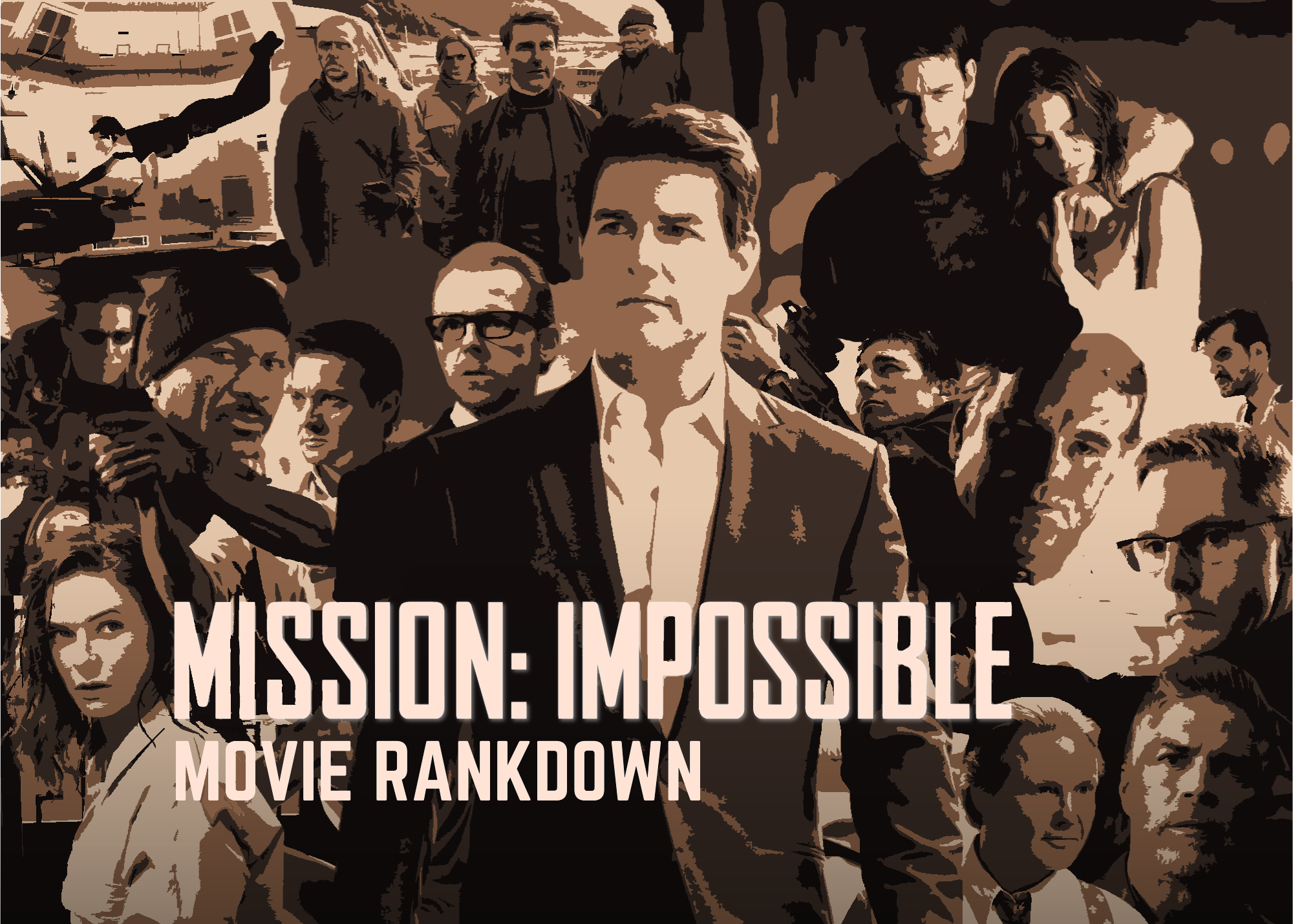Retrospective: Nostalgia Has Its Swinging '60s Day in "American Graffiti"
Before lightsabers and death stars, George Lucas asked a simple question: where were you in '62?
RetrospectiveIn November 2002, Ashley Pelman and Jazlyn Bradley brought a lawsuit against McDonald’s, the world's most prolific restaurant chain. It contended that the fast-food giant failed to properly inform the public of their food processing, increasing the risks of consuming their products.
A judge dismissed the suit but conceded McDonald’s culpability by being secretive about their ingredients. In a sense, he was right, but we know it was nonsense.
We have choices. We make a choice whenever we roll at the craps table or self-satisfy with pornography. We make a choice whenever we light a cigarette, take a shot of tequila, or devour a Big Mac. If there is an opportunity to become addicted to something, we seize it. Every downward spiral begins with a choice, which we cannot blame on McDonald’s.
Regardless, some legitimized the suit as emblematic of a health epidemic. It was well-aimed but half-hearted, in large part because deep down, they knew the truth of good old-fashioned American cuisine: burgers are damn good.
But to those combatting obesity and its accompanying ailments, burgers are poison. It’s saturated fats, cancerous oils, processed cheese, refined white bread, sugary ketchup, fatty mayonnaise, and, more often than not, a hulking side of salty french fries.
Committed waist-slimmers resist temptation and stay the course of kale and quinoa, but if something stirs the urge, even if it reminds them it's no good, breaking their proverbial fast will seem worth it.
American Graffiti is that something.
The opening shot of George Lucas’ 1973 coming-of-age nostalgia comedy is Mel’s Drive-in, the historic California burger joint. The sun sets on the Modesto sky, and the neon sign flicks on. The 60s aesthetic takes hold to the tune of Bill Halley & His Comet’s “(We’re Gonna) Rock Around the Clock,” and you feel it. It courses through your veins, pumps boiling blood to your heart, and makes your mouth water: you want a burger.
Wisdom is the lifeblood of nostalgia. As we age, the world steadies. Life will never match our pace, nor will we appreciate just how quickly we gray, but in the quiet times, we realize the weight of every moment we had before we knew they were so precious. American Graffiti understands those moments in ways we do not always consider.
It longs for the days, before fast food corporations got lashed with lawsuits, when we could order a double Chubby Chuck, a Mexicali chili-barb, two sides of fries, and a couple of cherry Cokes without a care in the world. It aches for sweaty burgers and the fries so salty you had to make your soda an extra large. It wants that time that always seems a universe away no matter how close or far from it we are, when the only light to blot out the stars was the neon sign of that neighborhood diner.
It wants us to take off into the night and hop from one car to the other as though everyone was trustworthy. It remembers your friend’s annoying little sister, screeching threats to tattle your misdeeds to her Mom and Dad, the one you couldn’t stand when you cared what everyone else thought but realized wasn’t so bad the second you stopped.
It recalls the randy teenager who plays it cool to rope a girl in but enslaves himself to her the moment she caves. It remembers that friend, the dork who, somehow, landed the keenest gal in school but never knew his luck, and the wannabe Casanova cruiser with the slicked-back hair who slowly learns he isn’t what he wants to be and has never been that to anybody else.
It remembers the moment we stuck it to that teacher, whose power only existed in the prison from which we ached to escape but whose confines seemed friendlier the more life crept into our borders. It remembers that mysterious beauty who drove us wild with fantasy even though we shared only locked eyes and mouthed words.
It remembers our lies and contempt for those who didn't believe them. It recalls the teacher who was a tad too familiar with his students. It remembers the self-discovery, whether along a dawn-lit desert road or a sobering self-assessment as we talk to a local hero.
American Graffiti never seeks to justify the wrong or praise the right. It doesn’t want to condemn the miscues or the perpetrators or lecture us on the meaning of life. It just knows. It knows everything that made our lives wondrous or torturous, gleeful or miserable, was worth every second. We latch onto the friendships we carry forward and color our recollections with their warmth. We know it was because we were young and the world didn’t make sense and was never supposed to because we put too much pressure on ourselves to know who we were, what we wanted, and when and where we were going.
It is us, looking back and realizing we have never caught up to life, and it has never caught up to us. We always went around and around, chasing after all its fruits while it tried to tell us we’d already found them. They were in the moments we didn’t realize meant something while we had them.
It doesn’t matter if we lied or lost ourselves. It doesn’t matter if we tried to have our cake and eat it too or got our friend’s car stolen. It was a lifetime ago, before we could understand how everything that mattered didn’t matter at all. Eventually, we learn and grow. We realize that moving forward means making a happy ending. Good or bad is irrelevant: everything is worth savoring. In life, getting to the end is that happy ending.
American Graffiti is nostalgia but not sentimentality. It lets the sounds of the streets echo, and the colors lining them pop on their own power. It's quiet in its cleverness, playing off a busted speaker box, equating monogamy to getting run over by a bus, and giving a group of greasers more credit than they deserve. Everyone is always just missing each other, aware that their world is those few streets of theaters, burger joints, appliance stores, and cheap hotels, but never appreciating having them. We can fear leaving for the great unknown or swear it off for the paradise that awaits, but one way or another, we never see its value until we realize it always had value.
It knows our comfort with archetypes, whether it be a slimy used car dealer badgering us to leap from one incredible, once-in-a-lifetime offer to the next or the horny teenager seeking to score on the last night of summer. It knows that no matter how much we claim to “cringe” at certain sights, we don’t. It knows everything "we never did" we did a thousand times, and everything we swore we never were embodied us to a T.
It never lays on one concept so thick that we can’t see its soul. You’ll swell as Carol seeks John’s acknowledgment before being forced to bid farewell. You’ll groan at Steve and Laurie kissing and making up over and over and over. You’ll chuckle at Toad’s disasters and his date passing the time on a spooky countryside walk with stories of goat killers. But it isn’t a torrent of tears, a flurry of frustration, or a landslide of laughter. It’s everything we all experience to the exact degree we experience it. For every heartbreak, there is reconciliation, even if that cycle spins until we wear ourselves out; for every mishap, there is triumph, even if the victory seems pyrrhic; for every chuckle, there is contemplation, even if on easy choices.
It’s how we gaze back at life, and American Graffiti knows it. It’s never too clever or sharp, too insightful or prophetic. It just lives and lets its characters live as we did. We made mistakes and thrived, sometimes at the same time. We didn’t always hook up with our dream lover, but sometimes we did. We didn’t always find our footing, but we kept walking anyway.
In the end, and one day we will reach that end, American Graffiti asks us to know that everything we did that made us stop believing in the impossible, or even in ourselves, doesn't matter. All the awful stuff can hurt, and it will. All the good stuff can lift us, and on its wings, we can soar.
Regardless, what matters most is that they happened, that we have something to look back on and know that even though we have bills and mortgages to pay, children to care for, and backs that ache and knees that shake, our world meant something. Maybe nostalgia is "bad," and we should always surge toward tomorrow until we have no tomorrows left. Maybe reflection is for those with little on the horizon. But despite what society may tell us, a little nostalgia is good. We deserve to remember... warts and all.
You can come for the soundtrack, a collection of mid-century bangers as corny in their familiarity as truthful in their application. You can come for the cast, as much a time capsule as the movie’s 60s aesthetic. You can come for the cars, just like the ones you drove back in the summer of ‘62, or the ones you rode in as a kid that will pass down to you one day.
But for all the things that make us come to a movie, what matters most is what makes us stay, and goddammit, American Graffiti will make you stay for that burger.
.png)
97
Director - George Lucas
Studio - Universal Pictures
Runtime - 112 minutes
Release Date - August 11, 1973
Cast:
Richard Dreyfuss - Curt Henderson
Ron Howard - Steve Bolander
Paul le Mat - John Milner
Candy Clark - Debbie Dunham
Cindy Williams - Laurie Henderson
Mackenzie Phillips - Carol Morrison
Charles Martin Smith - Terry “The Toad” Fields
Harrison Ford - Bob Falfa
Wolfman Jack - Disc Jockey
Editor - Verna Fields, Marcia Lucas
Cinematography - Ron Eveslage, Jan D’Alquen
Screenplay - George Lucas, Gloria Katz, Willard Huyck

%20(13%20x%206%20in)%20(13%20x%204%20in).png)





































.png)






.png)